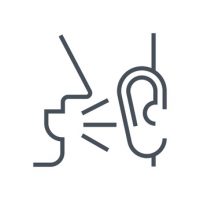
I’ve received my share of criticism. It comes with leadership. If you aren’t receiving criticism — you probably aren’t leading. I’ve also received my share of anonymous criticism. I’ve been a church planter and church revitalizer — so perhaps more than my share. 🙂
I’m one of those rare leaders who doesn’t automatically dismiss criticism because someone doesn’t sign their name. Mostly because I try to consider if something in my personality or approach caused this person to feel the need to remain anonymous. (My StrengthFinder indicates I can tend to be controlling — something I have to continually guard against.) I have had people go to the trouble of making up a name and an email address. I can tell because the details in the criticism are often accurate, but none of the information matches anyone in our database.
I figure in times like this that the criticism is from someone who feels the need to remain anonymous. I would always prefer to talk with the person, but I try to reconcile his or her reasoning for withholding a name.
The reality is I believe there are at least four different motivations for a person offering anonymous criticism. While I still don’t believe this is the right option to take in giving criticism, and it doesn’t fit well with my straight-foward personality, I realize everyone is not like me.
Here are 4 types of anonymous critics:
Fearful – This is the anonymous critic who is simply afraid of conflict. It’s not that the person doesn’t like you or the organization or that he or she doesn’t have good suggestions for improvement. This anonymous critic simply can’t bring him or herself to reveal his or her identity, because of individual fear. (Controlling leadership often develops this type of anonymous criticism.)
Pleaser – This is the anonymous critic who wants everyone to get along, and so doesn’t want to create any problems or tension. He or she thinks you need to know something, but would rather not be the one to tell you. They aren’t afraid of conflict as much as afraid you won’t like them if they tell you what’s on their heart or mind.
Trouble-maker – This is the anonymous critic who is trying to stir up trouble and knows that throwing the anonymous criticism in the loop causes confusion and concern. These people are disrupters and critics I’d rather avoid reading if I could always discern this was the critic’s intent. (They are my least favorite kind.)
Passive – This is the anonymous critic who has low interest in the organization and would prefer not to be bothered any further. It could be the one who feels intimidated by you or the position. (Controlling leadership also develops this type of anonymous criticism.) This anonymous critic doesn’t want to be in the middle of the conflict, but thinks you need to know what he or she has to share.
Obviously, you can’t always know which of these you’re dealing with, but it does help me think through my approach to anonymous criticism.
You can read a previous post HERE on how I process anonymous criticism.
If you had to choose one, which of these would you prefer to listen to?





Twitter: kmac4him
says:
Church Revitalizer, I like that! It fits you well! I have never heard it put like that. Would love to see a post on that.
ummmmm I would prefer to listen to none of them… LOL… but if I had to pick one, I guess it would be "The Trouble Maker" because their disruptions are going to be loud and sooner more than later you can figure out who it is. It is much more easier to deal with a person outright mad, you get what you see, than a person who is subtle and passive and you get blindsided by them. The worst kind of anonymous criticism for me is sarcasm with the added twist of the knife: Oh, I was only kidding! Don't take it personally! Ummmmm yes, you were "just kidding"!
I'll consider that post idea. Thank you